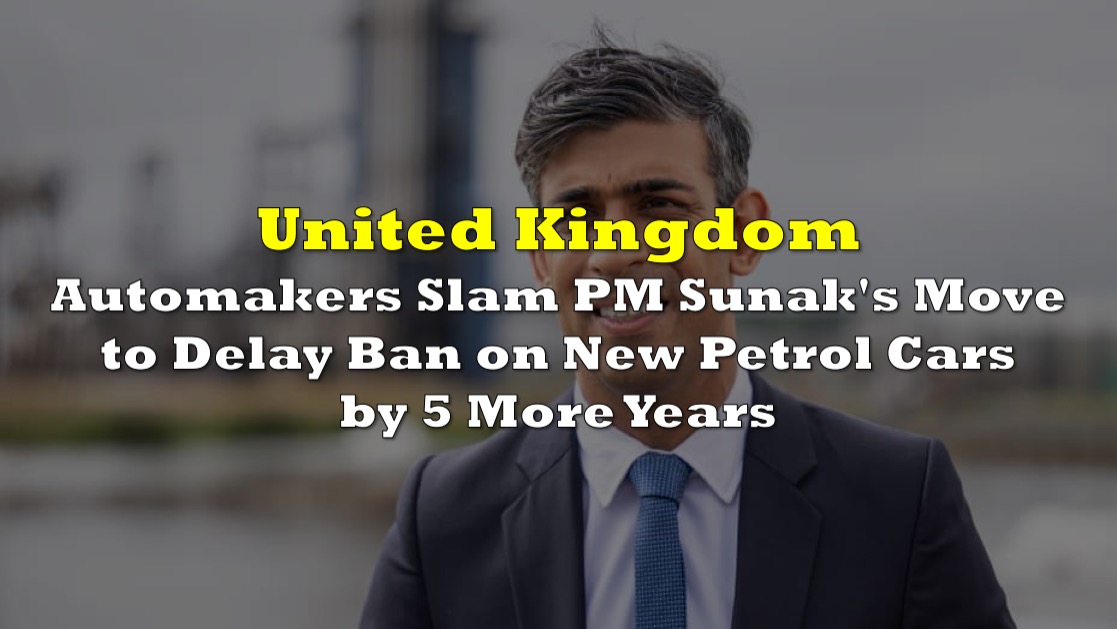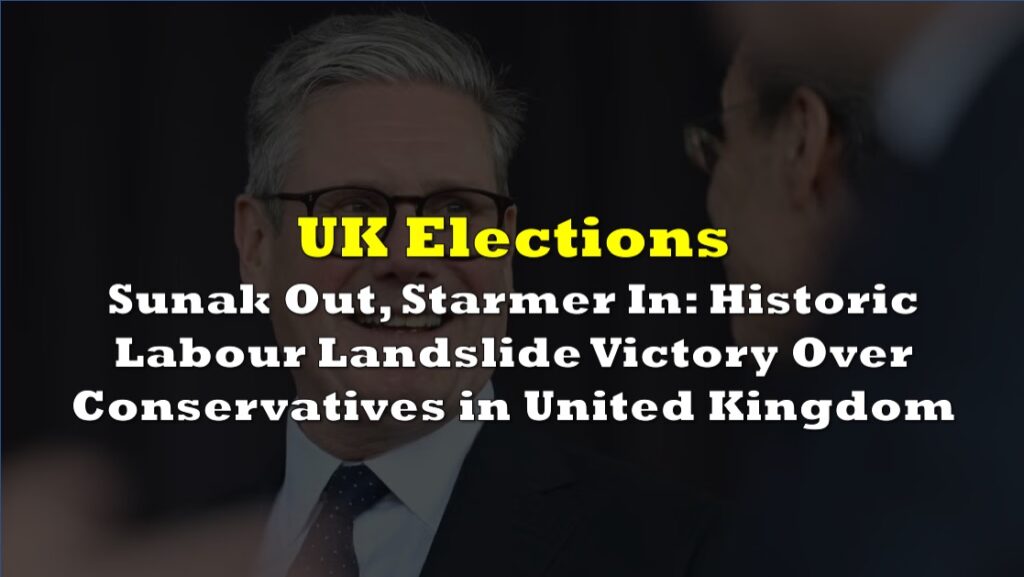UK Prime Minister Rishi Sunak announced on Wednesday a revision to Britain’s climate change plans, opting to delay the ban on new petrol car sales to 2035 instead of the previously scheduled 2030 target. Sunak justified this change by emphasizing the need to maintain public support for the country’s transition to net zero emissions by 2050.
While he reaffirmed his commitment to the legally-binding net zero target by 2050, Sunak argued that Britain’s progress was well ahead of other nations globally. To alleviate what he termed “unacceptable costs” on British households arising from the energy transition, he unveiled several adjustments to existing policies. These included postponing the ban on new petrol and diesel cars, facilitating the transition from gas boilers to heat pumps in homes, and refraining from mandating home insulation improvements.
Sunak justified these policy shifts by citing concerns that previous governments had rushed into setting ambitious net-zero targets without securing sufficient public support. He cautioned against risking a backlash that could jeopardize the broader mission of combating climate change.
“If we continue down this path, we risk losing the British people and the resulting backlash would not just be against specific policies, but against the wider mission itself,” he said.
This move by Sunak has garnered mixed reactions from various stakeholders. Businesses and environmental advocates argue that aggressive decarbonization efforts could drive investment, economic growth, and job creation, particularly in former industrial regions. They stress the importance of providing a stable and predictable environment to encourage both companies and consumers to embrace green technologies, as the UK has long positioned itself as a leader in the transition to a green economy.
However, with a national election looming on the horizon, Sunak appears to be wagering that scaling back some green policies will resonate with voters grappling with persistent high inflation and sluggish economic growth. Recent government decisions, including delays in post-Brexit border checks and uncertainties surrounding major infrastructure projects, have unnerved investors and raised concerns about the UK’s commitment to its climate goals.
Critics of the policy shift argue that it will deter investment and create uncertainty in the market. They urge the UK to emulate the European Union and the United States in establishing supportive and consistent policies to drive sustainable growth.
Industry confusion
Car manufacturers, who have poured billions into the development of electric vehicles, have strongly criticized the UK government’s decision. They argue that this move will disrupt supply chains and hinder the transition to more eco-friendly automobiles.
Kia, the South Korean carmaker with plans to launch nine electric vehicle models in the UK over the next few years, expressed disappointment over the change in policy. A Kia spokesperson remarked, “Today’s announcement… alters complex supply chain negotiations and product planning, whilst potentially contributing to consumer and industry confusion.”
The automotive sector has also expressed frustration with the lack of clarity surrounding the government’s zero emission vehicle (ZEV) regulations, which require an increasing percentage of a manufacturer’s sales to be ZEVs leading up to the ban. A spokesperson from Volkswagen UK stressed, “We urgently need a clear and reliable regulatory framework which creates market certainty and consumer confidence, including binding targets for infrastructure rollout and incentives to ensure the direction of travel.”
Analysts and industry leaders have voiced concerns that this policy reversal could disrupt the recent momentum in the adoption of environmentally friendly transportation, discourage potential EV buyers, and hinder the plans of electric charging infrastructure providers. Adrian Keen, CEO of public charging network InstaVolt, cautioned, “This delay will also put investment in EV infrastructure at risk, not to mention the wider market including battery, solar and green energy initiatives.”
In contrast, Toyota welcomed the government’s decision, viewing it as a step that would aid both the industry and consumers in adapting to the evolving landscape. Toyota emphasized that it recognizes the importance of various low emission and affordable technologies in facilitating a pragmatic transition.
Before Sunak’s announcement, Ford, which has committed $50 billion globally to electrify its vehicles, had criticized the reported policy shift, describing it as “the biggest industry transformation in over a century.” Lisa Brankin, Ford UK Chair, stated, “Our business needs three things from the UK government: ambition, commitment and consistency. A relaxation of 2030 would undermine all three.”
Despite these concerns, Sunak remains confident in the government’s ability to achieve its net-zero commitments. He points to the UK’s track record of overdelivering on climate targets, falling industry costs, and greater-than-expected public participation in climate measures as reasons to believe that the 2050 goal remains attainable.
Information for this story was found via Reuters and the sources mentioned. The author has no securities or affiliations related to this organization. Not a recommendation to buy or sell. Always do additional research and consult a professional before purchasing a security. The author holds no licenses.









